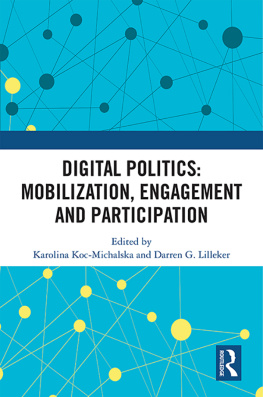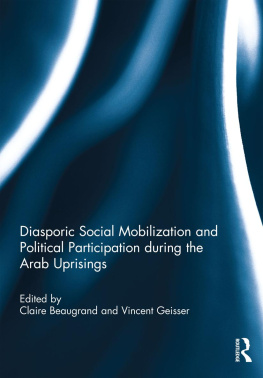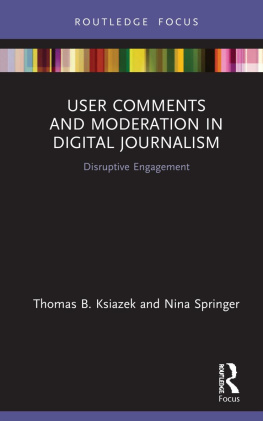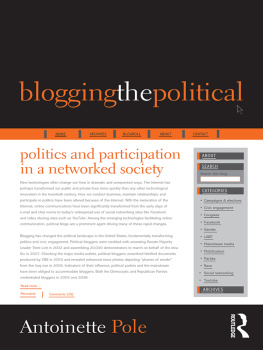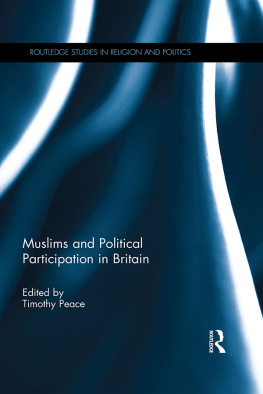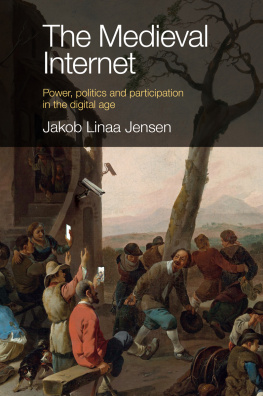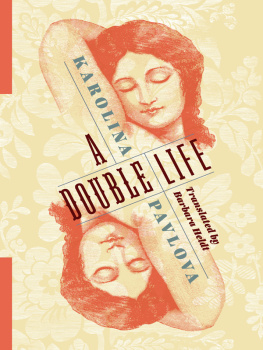Digital Politics: Mobilization, Engagement and Participation
This book discusses the implications of recent innovations in information and communication technology for civic and political engagement. The international mix of contributions offers insights across a broad spectrum of studies into the form of engagement: explaining the reasons, incentives and motivations for engaging, and the different forms and levels of engagement; contrasting traditional and non-traditional forms of engagement and how they interlink; and asking why people utilize or avoid certain forms of engagement.
It is a must-read for any scholar interested in the impact of social media on citizens propensity to get involved in political actions. It depicts the role that parties, organizations and peers play in mobilizing or demobilizing others and how online behaviour can act as a springboard into what might be called real-world politics. The book gathers together prominent scholars who offer their understanding of social and political phenomena and give theoretical and empirical insights into the highly complex questions around political participation in the digital age.
This book was originally published as a special issue of Political Communication.
Karolina Koc-Michalska is Associate Professor at the Audencia Business School, Nantes, France and Associated Researcher at CEVIPOF Sciences Po, Paris, France. Her research focuses on the strategies of political actors in the online environment and citizens political engagement, especially the role of motivations and encouragement in both the online and the offline environment.
Darren G. Lilleker is Associate Professor of Political Communication and Head of the Corporate and Marketing Communication Academic Department in the Faculty of Media and Communication at Bournemouth University, Poole, UK. His research focuses on the professionalization and marketization of politics and its impact on citizen psychology and engagement.
Digital Politics: Mobilization, Engagement and Participation
Edited by
Karolina Koc-Michalska and
Darren G. Lilleker
First published 2019
by Routledge
2 Park Square, Milton Park, Abingdon, Oxon, OX14 4RN, UK
and by Routledge
711 Third Avenue, New York, NY 10017, USA
Routledge is an imprint of the Taylor & Francis Group, an informa business
2019 Taylor & Francis
All rights reserved. No part of this book may be reprinted or reproduced or utilised in any form or by any electronic, mechanical, or other means, now known or hereafter invented, including photocopying and recording, or in any information storage or retrieval system, without permission in writing from the publishers.
Trademark notice: Product or corporate names may be trademarks or registered trademarks, and are used only for identification and explanation without intent to infringe.
British Library Cataloguing-in-Publication Data
A catalogue record for this book is available from the British Library
ISBN13: 978-1-138-62539-6
Typeset in Times New Roman
by codeMantra
Publishers Note
The publisher accepts responsibility for any inconsistencies that may have arisen during the conversion of this book from journal articles to book chapters, namely the possible inclusion of journal terminology.
Disclaimer
Every effort has been made to contact copyright holders for their permission to reprint material in this book. The publishers would be grateful to hear from any copyright holder who is not here acknowledged and will undertake to rectify any errors or omissions in future editions of this book.
The chapters in this book were originally published in the journal Political Communication, volume 34, issue 1 (February 2017). When citing this material, please use the original page numbering for each article, as follows:
Introduction
Digital Politics: Mobilization, Engagement, and Participation
Karolina Koc-Michalska and Darren G. Lilleker
Political Communication, volume 34, issue 1 (February 2017) pp. 15
Three Prompts for Collective Action in the Context of Digital Media
Bruce Bimber
Political Communication, volume 34, issue 1 (February 2017) pp. 620
What Drives Political Participation? Motivations and Mobilization in a Digital Age
Darren G. Lilleker and Karolina Koc-Michalska
Political Communication, volume 34, issue 1 (February 2017) pp. 2143
Social Media Social Capital, Offline Social Capital, and Citizenship: Exploring Asymmetrical Social Capital Effects
Homero Gil de Ziga, Matthew Barnidge, and Andrs Scherman
Political Communication, volume 34, issue 1 (February 2017) pp. 4468
Online Mobilization in Comparative Perspective: Digital Appeals and Political Engagement in Germany, Italy, and the United Kingdom
Cristian Vaccari
Political Communication, volume 34, issue 1 (February 2017) pp. 6988
Friend or Foe? Digital Technologies and the Changing Nature of Party Membership
Rachel Gibson, Fabienne Greffet, and Marta Cantijoch
Political Communication, volume 34, issue 1 (February 2017) pp. 89111
I Shield Myself From Thee: Selective Avoidance on Social Media During Political Protests
Qinfeng Zhu, Marko Skoric, and Fei Shen
Political Communication, volume 34, issue 1 (February 2017) pp. 112131
For any permission-related enquiries please visit: http://www.tandfonline.com/page/help/permissions
Matthew Barnidge is an Assistant Professor in the Department of Journalism & Creative Media at the University of Alabama, Tuscaloosa, USA and a Senior Researcher in the Media Innovation Lab (MiLab) in the Department of Communication in the Faculty of Social Sciences at the University of Vienna, Austria. He specializes in emerging media and contentious political communication with an international perspective.
Bruce Bimber is a Professor and Chair in the Department of Political Science at the University of CaliforniaSanta Barbara, USA. His main subject area is political communication, with a focus on the relationship between digital media and patterns in human behaviour, especially in the domains of political organization and collective action.
Marta Cantijoch is a Lecturer in Politics at the University of Manchester, UK. Her research interests include political behaviour, political participation, elections and voting, political communication and the effects of new media. She is particularly interested in how citizens use the Internet to engage in politics and develop their citizenship skills.
Rachel Gibson is a Professor of Politics at the University of Manchester, UK. Her main research interest is the use of new media by political organizations and candidates in campaigns and elections. She is the Director of the Cathie Marsh Institute for Social Research, UK. She is co-editor of the

